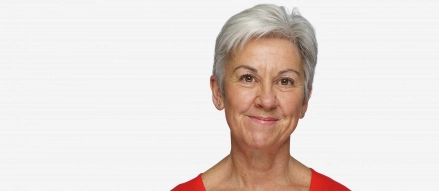
Scottish Government increases income tax disparity with rest of the UK
The changes will impact a large number of individuals in Scotland and we take a look at the detail below.
Scottish Income Tax
Scottish Income Tax is payable by Scottish taxpayers and applies to salary, self-employment, pension and rental income. The Scottish Government introduced a five-band structure for income tax in 2018 as part of their ‘fairer and more progressive approach’ to Scottish taxation.
Mr Swinney announced that the Top Rate band will reduce from £150,000 to £125,140 from 6 April 2023. This was widely expected following the corresponding change that was announced by the UK Chancellor in his Autumn Statement a few weeks ago.
All other income tax bands will remain frozen for the 2023/24 tax year. This is a change to previous years which usually sees the bands increased in line with inflation. As a result, taxpayers will no longer receive the incremental benefit as wages increase as a result of inflation.
Furthermore, Mr Swinney announced he would be increasing the higher rate of income tax from 41% to 42% and the top rate from 46% to 47%. This means that from April 2023, Scottish taxpayers will pay 2% more income tax than their counterparts in the rest of the UK on income above £43,662.
This change further exacerbates the issue of Scottish taxpayers starting to pay higher rate tax on incomes below the national insurance upper earnings limit set by Westminster. As a result, Scottish taxpayers will pay an effective rate of 54% (i.e. 42% income tax and 12% NIC) on earnings between £43,662 and £50,270, compared to an effective rate of 32% for those south of the border (20% income tax and 12% NIC).
Scottish Income Tax – 2023/24
Band | Taxable income | Scottish tax rate |
Personal Allowance* | Up to £12,570 | 0% |
Starter rate | £12,570 to £14,732 | 19% |
Basic rate | £14,733 to £25,688 | 20% |
Intermediate rate | £25,688 to £43,662 | 21% |
Higher rate | £43,663 to £125,140 | 42% |
Top rate | over £125,140 | 47% |
* Personal Allowance set by UK Government.
Land and Buildings Transaction Tax (LBTT)
LBTT is applied to residential and non-residential land and buildings transactions in Scotland. The only change announced in the Scottish Budget in relation to LBTT was an immediate increase to the Additional Dwelling Supplement (ADS) from 4% to 6%. The ADS normally applies on the purchase of a second residential property valued above £40,000.
The increase to 6% is effective for all purchases completing on or after 16 December 2022 unless a contract has been entered into before 16 December 2022. Bringing the change in immediately removes any scope for planning to avoid the charge but may also present issues for acquisitions due to conclude shortly where funding has already been arranged. The Scottish Government has taken this step to further disincentivise the ownership of multiple properties in order to make more housing available for first time buyers.
Mr Swinney confirmed that all other LBTT rates and bands will remain the same.
Land and Buildings Transaction Tax – 2023/24
Residential conveyances | Non‑residential conveyances | Non‑residential leases | |||
Purchase price | LBTT rate | Purchase price | LBTT rate | Net present value of rent payable | LBTT rate |
Up to £145,000 | 0% | Up to £150,000 | 0% | Up to £150,000 | 0% |
£145,001 to £250,000* | 2% | £150,001 to £250,000 | 1% | £150,001 to £2m | 1% |
£250,001 to £325,000 | 5% | Over £250,000 | 5% | Over £2m | 2% |
£325,001 to £750,000 | 10% | ||||
Over £750,000 | 12% | ||||
* First‑time buyers are entitled to LBTT relief up to £175,000
Want to hear more?
Join our panel of experts for a webinar tomorrow morning (Friday 16 December at 10:00) as we unpick today’s announcements and talk about what it all means for you.
Hosted by Scottish Tax Partner, Liz Ritchie, our panel will also include our Chief Economist George Lagarias, as well as tax specialists from across the firm.
You can register for our webinar via the sign-up button below.


